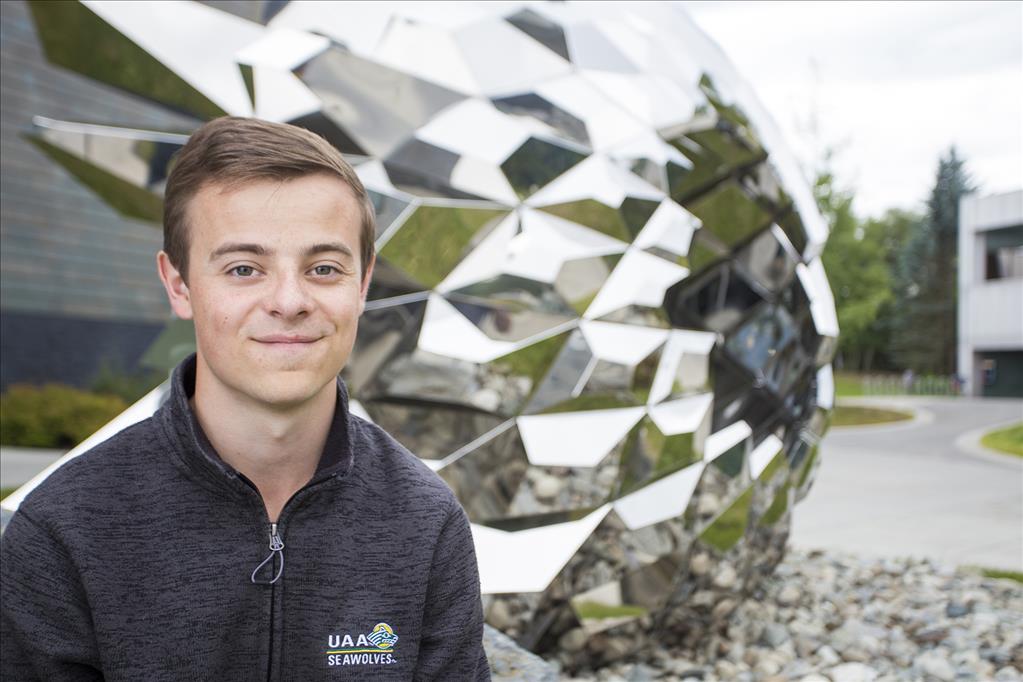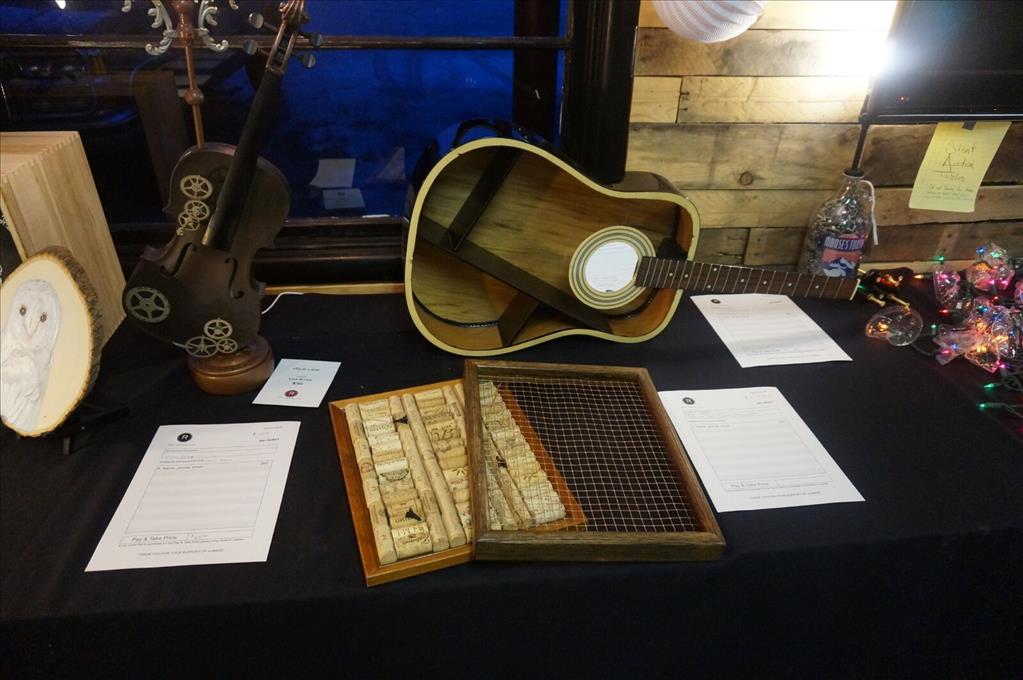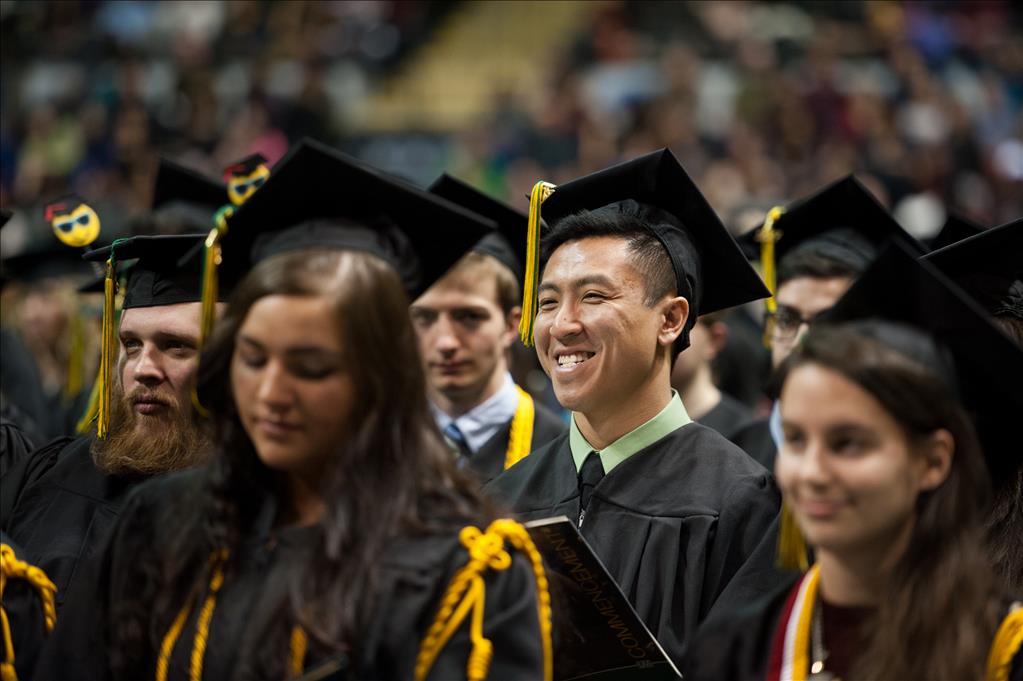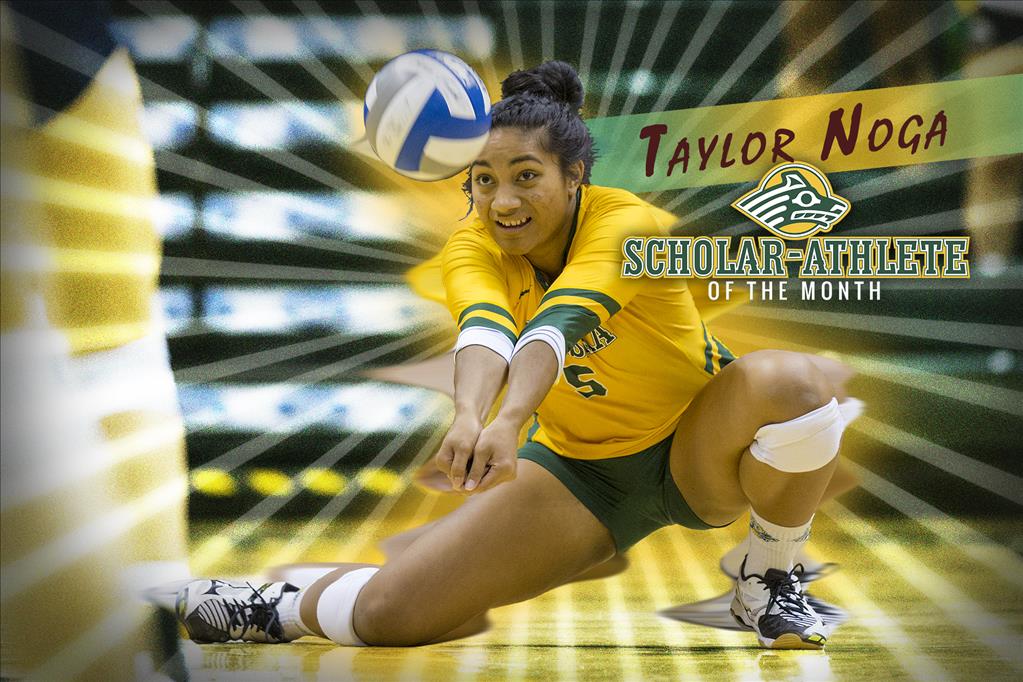Resilience, parents’ inspiration guided Commencement speaker toward success
by Tracy Kalytiak |

Nina Lee was named student speaker for Spring 2017 Commencement, which took place May 7 at the Alaska Airlines Center. (Photo by Philip Hall / University of Alaska Anchorage)
Nina Lee graduated from East High School nine years ago, moved to San Diego to attend community college and, three semesters later, her GPA stood at an anemic 1.84.
Seeing that, her parents ordered Nina back to Anchorage.
"I enrolled in classes that spring at UAA," she said. "Unbothered by the perception of my parents, I failed my first three classes with the justification that I was young. I thought, 'Who cares? I have plenty of time to go to school.'"
Twice more, Nina tried and failed to launch her college career: "Five years out of high school, $7,930 spent as a Seawolf, and a GPA of 0.00, I gave up for good. I find humor while reflecting back on these early experiences because I can remember being so enthusiastic before the start of every semester. I would say to myself, 'OK! This time I'm really going to do it. This time it's going to be different.' And it never was. At 23 years old, I had successfully failed my way out of two colleges."
Nina decided to try something else. For two years, she volunteered in local elementary schools and, there, found a passion: teaching.
That time away transformed the way Nina viewed life.
"In my mid 20s, I was bothered by the fact that I did not have a salary, or benefits, or a retirement plan," she wrote. "I realized I had been taking my parents for granted - my immigrant parents who worked 14-plus-hour days to provide me the best possible life. I felt ashamed and embarrassed."
In 2015, Nina was ready for college, and returned to UAA.
"With a newfound drive and motivation, I enrolled as a full-time student," she wrote.
Now, Nina is poised not only to graduate with a bachelor's degree in early childhood education - with a cumulative GPA of 3.79 - she addressed her class as its student speaker at spring commencement, at the Alaska Airlines Center.
"My story is all too familiar," she wrote in her application for the distinction. "I am a nontraditional student who, through resiliency, earned my success."
Mother's inspiration provides guidance
Nina's parents emigrated from South Korea 27 years ago, and Nina was born in Anchorage. The family then moved to Nikiski.
She began battling adversity on her first day of kindergarten there, when she had to start learning a new language, English.
That was also the first day Nina experienced hate from people who mocked her Korean identity and culture.
"Throughout my primary grade years, my English-speaking peers relentlessly teased me for having slanted eyes, mocking my appearance by tugging on the outside corners of their eyes," Nina wrote.
Nina didn't want to be different. She wanted her mother to pack peanut butter and jelly sandwiches in her lunch, rather than traditional Korean foods. And she wanted to speak English - only English.
Nina found friends, playing outside at the pool or ice-skating rink with them and her younger brother. Her family moved from Nikiski to Anchorage when she reached the third grade, and her painful memories subsided as she began to realize that diversity is strength.
Her mother had worked as a kindergarten teacher before leaving Korea. Nina credits her with providing an example and goal to work toward.
"She was the best teacher," Nina said. "Her personality is vibrant - full of affection, passion, love, forgiveness, and her smile is the most contagious act of kindness I've ever seen. As with any young child, my interest in becoming a teacher rooted from the desire to be just like my first role model."
With that goal in sight, Nina rediscovered her core of strength on what she called her "scenic stroll" toward a teaching career.
"The fortitude I gained from recognizing bilingualism as a strength is what motivated me to work tirelessly to promote the development of heritage languages in young children," she said, "to instill a positive sense of self and recognition of uniqueness that being bilingual brings to an individual."
Broadening her educational scope
Back in 2012, Nina enrolled in an introductory psychology course that Professor Hattie Harvey was teaching.
"Although I did not remember this, she recently shared with me that she failed that class," Harvey said. "I would never have known that given her performance and dedication in subsequent early childhood courses I have taught."
Harvey said her first memories of Nina emerged from her Introductory to Early Childhood Education course in 2014.
"She consistently sat in the front of the class," Harvey said, "and I could always rely on her asking thoughtful and reflective questions, a clear indicator she had read the assigned readings!"
Harvey again taught Nina in a Young Children in Inclusive Settings class during the fall 2016 semester. "She demonstrated herself as a dedicated and engaged student," she said, "who was always willing to go above and beyond the requirements to enhance her own learning."
Nina sought a variety of paths to help broaden her knowledge, delving into new experiences not only with Harvey but also trying her hand at research after receiving an undergraduate research grant last year from the UAA University Honors College.
Nina used the grant to work as a community-engaged student assistant with UAA's Dr. Kathryn Ohle, who was researching how teachers and Alaska Native parents use printed and electronic dual-language books to foster and encourage early literacy and language development in young children.
Nina's role in Ohle's research involved countless hours of combing through literature reviews on the development of early literacy skills and creating practice-informed guides to educate classroom teachers and parents.
Nina also created both hard and digital copies of dual-language children's books, which were distributed to 16 classroom teachers in rural Alaska; she has been traveling to those places to directly observe how teachers are implementing those books in their classrooms.
And, she presented information on her work at the local Anchorage Association for the Education of Young Children conference and the statewide Alaska Native Studies conference.
"She has shown initiative, sensitivity and professionalism," Ohle said, "both in creating these multilingual books but also in how she has shared the products with Alaska Native educators, in how she has represented the UAA student population at a variety of events and in how she articulated its impact on her in the 2016 Selkregg [Award] video by the [UAA Center for Community Engagement and Learning]."
Ohle says Nina's work will continue here even after she has moved into her career, via a YouTube instructional video for parents, an article for teacher practitioners, presentations for the CCEL and department of undergraduate student research, and informal presentations with preschool educators in rural Alaska.
"I believe these activities promote UAA's role in supporting our Alaska communities and are just an example of how she will continue to engage as an active citizen," Ohle wrote. "I suspect she will inspire many, many children in our local communities to continue to work hard and pursue their educations."
Written by Tracy Kalytiak, University of Alaska Anchorage
 "Resilience, parents’ inspiration guided Commencement speaker toward success" is licensed under a Creative Commons Attribution-NonCommercial 4.0 International License.
"Resilience, parents’ inspiration guided Commencement speaker toward success" is licensed under a Creative Commons Attribution-NonCommercial 4.0 International License.














